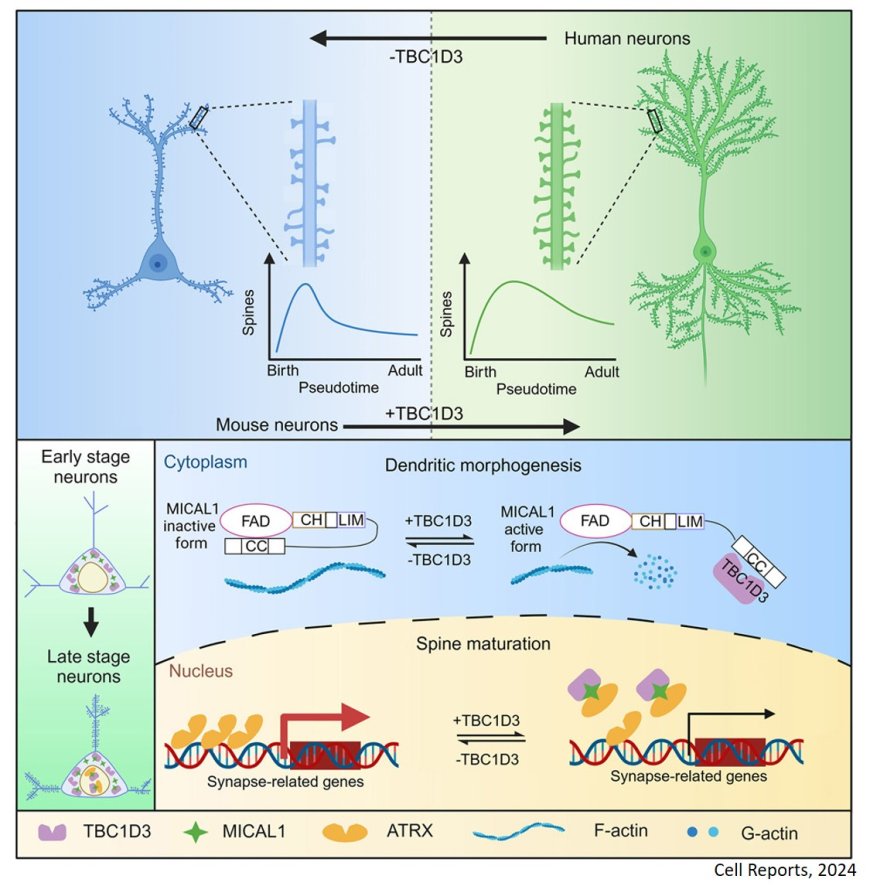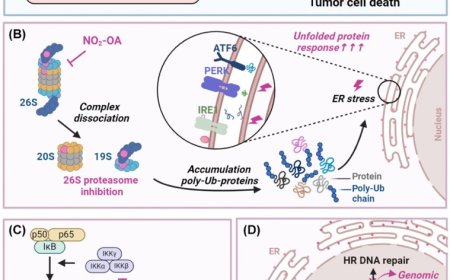Regulating the tempo of synaptic maturation

The molecular mechanism of high dendritic complexity and synaptic density, and their maturation process in the human cortical neurons (hCN) is not clearly understood.
The researchers demonstrate that the hominoid-specific gene TBC1D3 promotes dendritic arborization and protracts the pace of synaptogenesis.
The authors demonstrate that ablation of TBC1D3 in induced hCNs causes reduction of dendritic growth and precocious synaptic maturation. Forced expression of TBC1D3 in the mouse cortex protracts synaptic maturation while increasing dendritic growth.
They identify MICAL1 as a TBC1D3- binding protein, and their interaction is involved in dendritic arborization and protracted spine maturation by promoting actin dynamics and modulating synaptic gene expression, respectively.
Mechanistically, the researchers show that at early stage of differentiation, the TBC1D3/MICAL1 interaction in the cytosol promotes dendritic growth via F-actin oxidation and enhanced actin dynamics. At late stages, TBC1D3 escorts MICAL1 into the nucleus and downregulates the expression of genes related with synaptic maturation through interaction with the chromatin remodeling factor ATRX.
https://www.cell.com/cell-reports/fulltext/S2211-1247(24)00877-5












